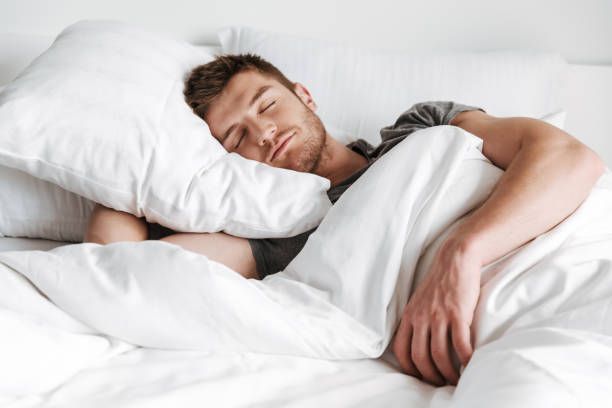Sleep apnea is a serious sleep disorder characterized by repeated interruptions in breathing during sleep. At Canadian Specialist Hospital (CSH) Dubai, our expert team provides comprehensive assessment and treatment for sleep apnea, ensuring patients achieve restful and restorative sleep.
Diagnosing sleep apnea involves a comprehensive assessment of the patient's symptoms and a detailed sleep history. At Canadian Specialist Hospital (CSH) Dubai, we utilize a range of advanced diagnostic tools to ensure accurate identification of the condition:
Polysomnography (Sleep Study): This is the gold standard for diagnosing sleep apnea. Conducted overnight in our dedicated sleep center, this comprehensive test monitors various physiological parameters, including:
Brain activity (EEG)
Eye movements (EOG)
Heart rate
Blood pressure
Blood oxygen levels (SpO2)
Breathing patterns (airflow and respiratory effort)
Analyzing these data points helps to identify the presence and severity of sleep apnea events.
Home Sleep Apnea Testing (HSAT): For certain patients, a simplified version of polysomnography can be performed at home. This test is less comprehensive but convenient and measures:
Airflow through the nose and mouth
Breathing patterns
Blood oxygen levels (SpO2)
Home testing is often suitable for patients with a high likelihood of obstructive sleep apnea and can provide rapid results.
Clinical Evaluation: Alongside diagnostic tests, our sleep specialists conduct a thorough clinical evaluation, including:
Detailed patient interviews focusing on sleep history and symptoms
Family medical history assessment
Review of lifestyle factors and behaviors affecting sleep
This comprehensive approach ensures accurate diagnosis and effective treatment planning for each patient.
At CSH Dubai, we are committed to providing personalized treatment options for sleep apnea, tailored to the individual's specific needs based on the severity and type of sleep apnea. Our multidisciplinary approach ensures each patient receives comprehensive care. Here are the primary treatment options we offer:
Continuous Positive Airway Pressure (CPAP) therapy is the most common and effective treatment for obstructive sleep apnea (OSA). It involves:
Usage: Wearing a mask over the nose and/or mouth during sleep. The mask is connected to a CPAP machine that delivers a continuous stream of air, keeping the airway open and preventing apnea episodes.
Effectiveness: CPAP therapy has been shown to significantly reduce the frequency of apnea events, improve sleep quality, and alleviate excessive daytime sleepiness. Many patients report a noticeable improvement in their overall quality of life when adhering to CPAP treatment.
Adjustment: Our team provides ongoing support and education to help patients adjust to using CPAP effectively.
For patients with mild to moderate OSA or those who can't tolerate CPAP, oral appliances may be recommended. These devices:
Are custom-made to fit comfortably in the mouth, designed to reposition the jaw or tongue to keep the airway open.
Offer a convenient alternative for individuals who cannot tolerate CPAP.
Are fitted in collaboration with dental specialists to ensure proper fit and comfort.
Certain lifestyle changes can significantly improve sleep apnea symptoms:
Weight Management: Losing weight can reduce fat deposition in the neck, which helps in minimizing airway obstruction.
Positional Therapy: Encouraging patients to sleep on their sides instead of their backs can prevent airway collapse.
Avoiding Sedatives: Reducing or eliminating alcohol and sedative use, which can relax throat muscles and worsen sleep apnea.
In cases where CPAP and other conservative treatments are ineffective, surgical interventions may be considered:
Uvulopalatopharyngoplasty (UPPP): This snoring surgery involves removing excess tissue in the throat to widen the airway. However, long-term outcomes show mixed results, with potential side effects such as difficulty swallowing in some patients.
Maxillomandibular Advancement: This procedure moves the upper and lower jaws forward to enlarge the airway.
Hypoglossal Nerve Stimulation: An implantable device that stimulates the nerve controlling tongue movement, keeping the airway open during sleep.
At Canadian Specialist Hospital, our approach to treating sleep apnea is holistic and multidisciplinary. Our dedicated team consists of:
Pulmonologists specializing in sleep medicine, who conduct thorough assessments and provide expert diagnoses.
Sleep Specialists who focus on individualized treatment planning and ongoing monitoring of sleep patterns.
ENT Specialists who can evaluate anatomical issues contributing to sleep apnea and recommend surgical options if necessary.
Research shows that effective sleep apnea treatment can lead to significant improvements in overall health and quality of life, including:
Enhanced Sleep Quality: Patients often experience deeper, uninterrupted sleep, leading to better daytime functioning.
Reduction in Sleep-Related Health Risks: Properly managing sleep apnea reduces the risk of serious health problems, such as hypertension, heart disease, and stroke.
Improved Quality of Life: Many patients report increased energy levels, better mood regulation, and enhanced cognitive function after treatment.
Compliance and Support: Our team provides ongoing education and support to encourage adherence to prescribed treatments, whether it's CPAP therapy, oral appliances, or surgical options.
At CSH Dubai, we're committed to providing comprehensive, personalized care for sleep apnea. Our state-of-the-art facilities, expert multidisciplinary team, and patient-centered approach ensure that each individual receives the most effective treatment for their specific condition.
If you're experiencing symptoms of sleep apnea, don't hesitate to seek help. Early diagnosis and treatment can significantly improve your quality of life and overall health.
Contact Canadian Specialist Hospital Dubai today to schedule a consultation with our expert team and take the first step towards better sleep and improved well-being.
